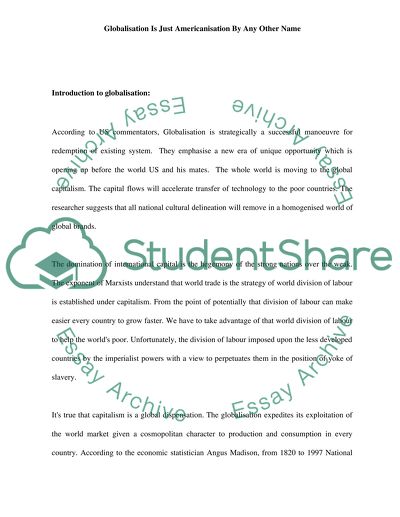Cite this document
(“Globalisation Is Just Americanisation By Any Other Name Essay”, n.d.)
Retrieved from https://studentshare.org/politics/1511905-globalisation-and-americanisation
Retrieved from https://studentshare.org/politics/1511905-globalisation-and-americanisation
(Globalisation Is Just Americanisation By Any Other Name Essay)
https://studentshare.org/politics/1511905-globalisation-and-americanisation.
https://studentshare.org/politics/1511905-globalisation-and-americanisation.
“Globalisation Is Just Americanisation By Any Other Name Essay”, n.d. https://studentshare.org/politics/1511905-globalisation-and-americanisation.


